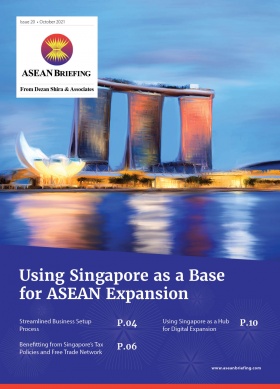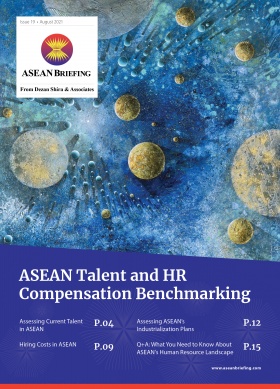Cambodia Makes Amendments to the Labor Law
On October 5, 2021, Cambodia’s government issued Royal Kram No. NS/RKM/1021/011 which amends several articles of the Labor Law. The Labor Law was first promulgated in 1997 and has since undergone two amendments: firstly in 2007 concerning wages for overtime and secondly in 2018, regarding provisions on seniority indemnity.
The latest changes include allowing enterprises to divide scheduled work hours into three shifts, and the provision that individual labor disputes can now be brought to court if the disputing parties cannot settle with the labor inspector. The government hopes the latest changes can strengthen the competitiveness of Cambodia’s labor market, especially as the country is aiming to reach middle-income status by 2030 and high-income status by 2050.
The labor law amendments will likely require employers to change the terms and conditions on employment contracts and internal regulations related to work shifts and public holidays.
What new articles have been introduced in the Labor Law?
Article 138: New provisions related to work shifts
Enterprises can now divide the work schedule into three shifts (morning, afternoon, and night) with each shift not exceeding eight hours (the maximum daily work hours). Previously the law only allowed the division of two shifts (morning and afternoon).
Importantly, the amendments do not erase the pay rate for employees working regular nightshifts. The rate for regular nightshifts (from 10 pm to 5 am) is 200 percent of normal wages.
Employers must also continue to provide other additional benefits and health allowances to employees who regularly work night shifts.
Article 300: Labor dispute resolution
Under this article, the jurisdiction of the Labor Arbitration Council has been expanded to also resolve individual labor disputes. Previously, the Arbitration Council only had jurisdiction over collective labor disputes.
In an individual labor dispute, the disputing parties can file a complaint to the labor inspector to seek conciliation.
If the disputing parties are unable to settle through conciliation by the labor inspector, the concerned party can file a complaint to the Labor Court or with the Arbitration Council.
Through this mechanism, the government aims to settle individual labor disputes more efficiently in addition to promoting more harmonious industrial relations.
Under the old article, any individual dispute could only be referred to the labor inspector of their province.
The formalities related to the new procedure for filing individual labor disputes will be issued in a later Prakas (decree).
Article 343: New powers for the labor inspector
This new provision empowers the labor inspector as a judicial officer to monitor any employment offenses as stated in the Labor Law. The legal procedures will be determined in an inter-ministerial Prakas, which is yet to be issued.
Article 162: Cancellation of compensated days off in lieu
Previously, to compensate for any public holiday that falls on a Sunday, workers were given a day off in lieu of the following business day. Under Article 162, workers are no longer entitled to this provision. This may essentially reduce the number of annual public holidays each year, depending on how many falls on a Sunday.
Further, any work performed on a public holiday must be under the supervision of the labor inspector. If the company intends to have employees work on a public holiday, they must apply for permission to the Ministry of Labor and Vocational training (MLVT).
The changes are part of the government’s continuing efforts to improve productivity in Cambodia. In fact, the MLVT has been steadily reducing the number of public holidays since 2018. There were 28 public holidays in that year, 22 in 2020, and 21 days in 2021.
About Us
ASEAN Briefing is produced by Dezan Shira & Associates. The firm assists foreign investors throughout Asia and maintains offices throughout ASEAN, including in Singapore, Hanoi, Ho Chi Minh City, and Da Nang in Vietnam, Munich, and Esen in Germany, Boston, and Salt Lake City in the United States, Milan, Conegliano, and Udine in Italy, in addition to Jakarta, and Batam in Indonesia. We also have partner firms in Malaysia, Bangladesh, the Philippines, and Thailand as well as our practices in China and India. Please contact us at asia@dezshira.com or visit our website at www.dezshira.com.







